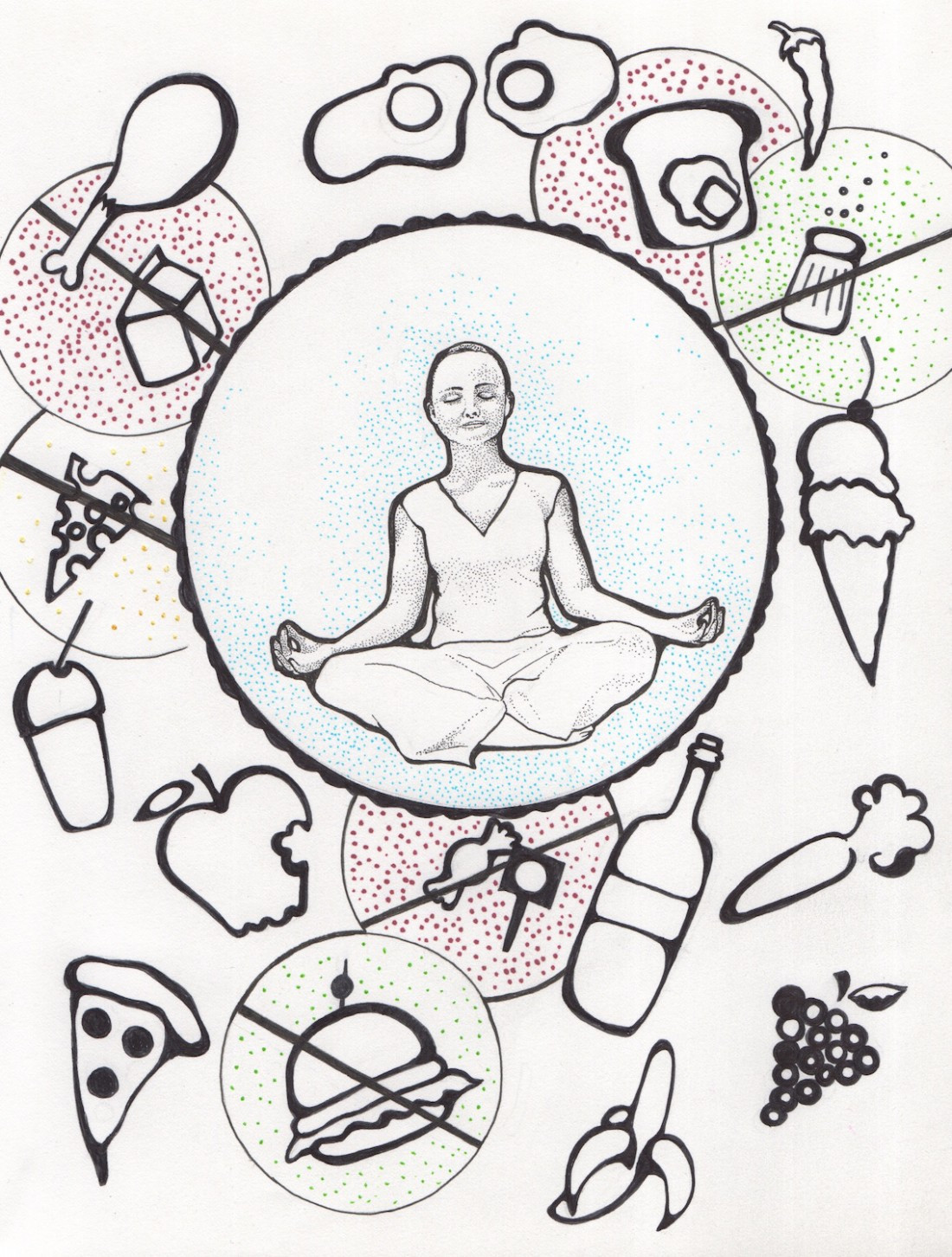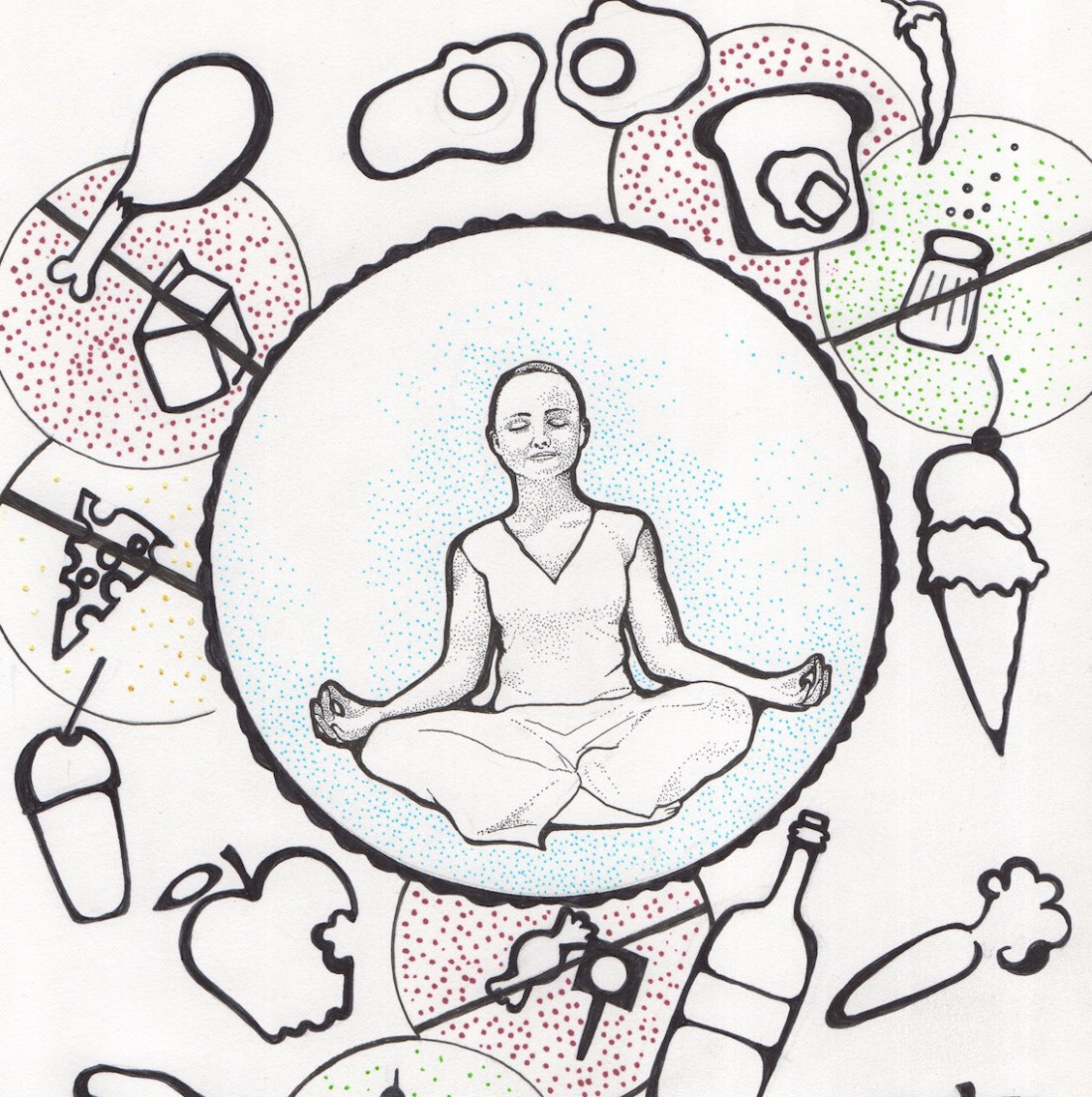Well, that’s garbage
Health and fitness: the angel and devil on your shoulder

Suddenly we’re saying things like:
“Muscle confusion,”
“Supplement,”
“Cleanse,”
“Life challenge,”
“Turbo,”
and “Spaghetti squash.”
But not all the vocabulary surrounding healthy living is healthy. Some of it sneakily sounds a bit more like verbal self-flagellation.
Let’s say you made it to the gym three days this week, made a meal plan and stuck to it, or passed your goal of 10,000 steps today. You might call your behavior and accomplishments “good”; “I was so good today.”
Ergo, the days when you had too much homework to go for a run, had M&Ms at the movies, or when you had to grab something quick and salty for lunch, you were “bad.” Like a dog who piddled on the rug. Bad dog. BAD.
If you’ve ever gone on any number of strict food plans, you’re probably familiar with the term “cheat day”, a day where you can eat items off the regular list like sugar, cheese, carbohydrates, AKA the delicious food group.
So on that day you’re “cheating.” You’re being unfaithful, rendering your mother’s famous blueberry pie she makes with love especially for you, into an act of adultery.
Maybe you’ve decided to eat “clean” (cutting out processed foods and focusing on whole foods, fresh fruit and vegetables, whole grains and lean meats). Now one bite of white flour or a Pringle makes you dirty. You’re a dirty little eater.
Which sounds less like a job for Dr. Oz than one for Dr. Freud.
Our well intended health goals have unexpectedly become a battle with morality. Good versus Evil. Pure versus tainted, faithful or unfaithful, you’re either strong willed or weak willed.
But food doesn’t have a moral compass. An eggplant is neither good nor bad. It is just an eggplant (unless used as a sexually suggestive Emoji, then it is so much more).
Your workout isn’t good or bad either. It is beneficial, but it’s just a thing you do now, part of your regular life.
And your food intake will never be “perfect” or “clean” if you ever plan on leaving your house again. But as long as you’re making informed food choices, it will always be nutritious, even while having a slice of birthday cake now and then.
I find moralistic fitness language frightening and manipulative because it’s wrapped in a shiny sheath of positivity.
“Good,” “pure,” and “clean” all sound positive, but the second you stop or stray it becomes poisonous self-talk, punishing us, tearing us down, ironically while on a journey to become “healthier.”
Everyone’s road to good health will look different, but en route, be cognizant of the language you use with your self-improvement.
Because like most of your meals, your inner thoughts ought to be nourishing as well.
Jane Testar is a writer and performer with the Winnipeg sketch comedy troupe, Hot Thespian Action, an improviser with local improv troupe, Outside Joke, and the host of the CBC Comedy Factory Podcast.
Published in Volume 70, Number 24 of The Uniter (March 17, 2016)








